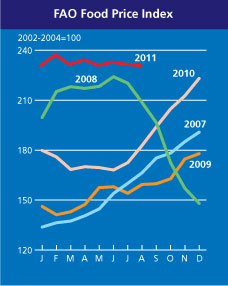This week in my development seminar, we discussed the agricultural household, an economic agent that encompasses is both a producer and a consumer. We then discussed intrahousehold allocations. That is, the distribution of resources within the household, and whether that distribution is efficient.
As part of that discussion, we discussed Udry (1996), a paper every student of development economics is familiar with. Whereas one would expect men and women to be equally productive on their respective plots within the household, Udry finds that in Burkina Faso, men are more productive than women at the margin when controlling for a host of confounding factors.
In practical terms, this means that the land within the average household could be redistributed from women to men to increase household productivity, which falls about 6 percent short of what it could be due to the gender differences in agricultural productivity. More generally, this constitutes a rejection of the hypothesis that the distribution of resources within the household is efficient as well as a rejection of the hypothesis that the preferences of the individuals within the household can be represented by the preferences of a single individual.
I was thus surprised last spring when I read in Ed Carr’s Delivering Development that he’d found that in Ghana, the gender difference went the other way around, i.e., women are more productive than men. Indeed, in chapter 4, Ed writes:
This decision-making becomes even more problematic when we consider the relative agricultural productivity of men and women in Dominase and Ponkrum. My research suggests that women in these villages are between two and three times more productive than their husbands, in terms of income per hectare. While to some extent this is a result of the fact that women farm much less land and therefore can crop it much more intensely than their husbands can their lands, this higher productivity is apparent even when women’s farms increase in size.
Of course, this would need to be subjected to the proper empirical specification and to a battery of statistical tests, but assuming the finding holds, it would be interesting to compare the two countries given that Burkina Faso and Ghana share a border. Is the change in gender differences due to different institutions? Different crops? I’m sure Ed will chime in with a bit more discussion in the comments below.
